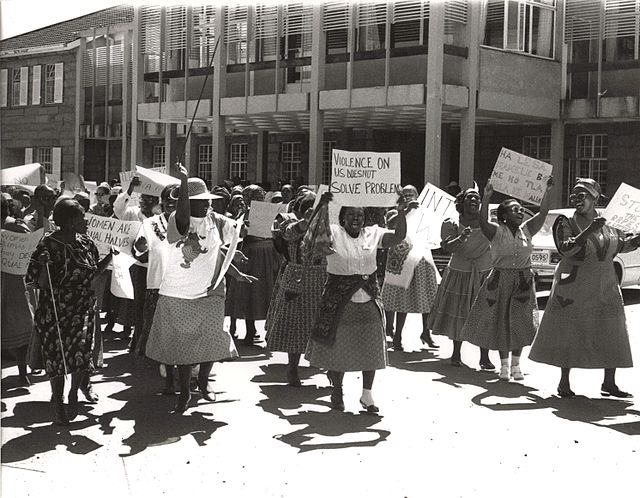Feminism in South Africa concerns the organised efforts to improve the rights of the girls and women of South Africa. These efforts are largely linked to issues of feminism and gender equality on one hand, and racial equality and the political freedoms of African and other non-White South African ethnic groups on the other. Early feminist efforts concerned the suffrage of White women, allowing them to vote in elections beginning from 1930s, and significant activism in the 1950s to demand equal pay of men and women. The 1980s were a major turning point in the advancement of South African women, and in 1994, following the end of the apartheid regime, the status of women was bolstered by changes to the country's constitution. Since the end of apartheid, South African feminism is a contribution associated with the liberation and democratization of the country, however, the movement still struggles with the embedded conservative and patriarchal views within some segments of South African society.

South Africa celebrates National Women's Day on August 9th.
The Black Sash is a South African human rights organisation. It was founded in Johannesburg in 1955 as a non-violent resistance organisation for liberal white women.
Black Sash demonstration between 1955 and 1960


